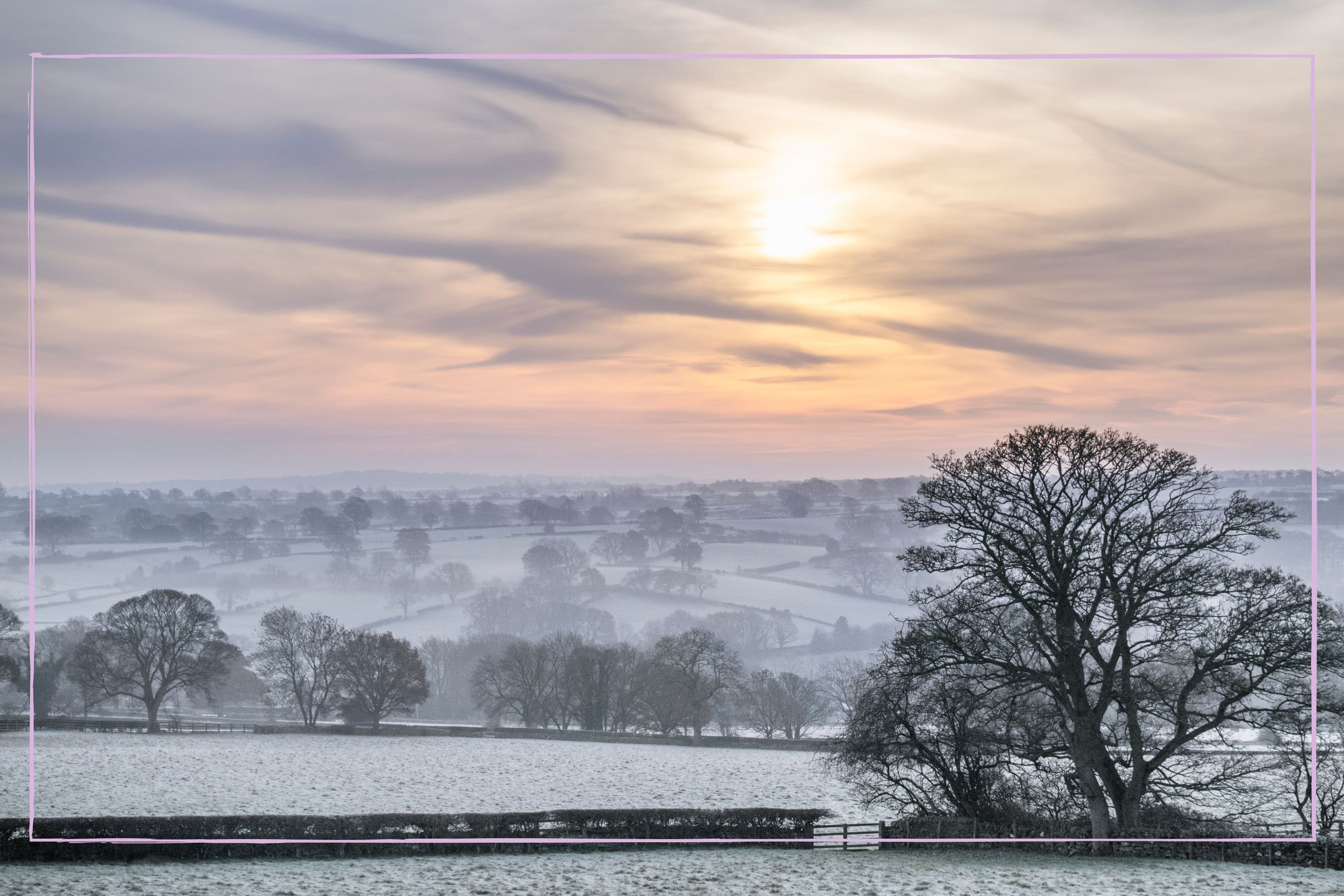When will it get warmer in the UK? Latest weather predictions
"Baby, it's cold outside..."


Parenting advice, hot topics, best buys and family finance tips delivered straight to your inbox.
You are now subscribed
Your newsletter sign-up was successful
Over the artic temperatures? Here's when it will get warmer in the UK.
It's safe to say that the UK has had its fair share of cold and icy weather this winter. A lot of us have been wondering if it will snow in the UK thanks to a significant drop in temperatures and the arrival of some freezing fog, and while snowfall back in December had many eagerly asking if we'll have a white Christmas, the snow in March 2023 was less warmly welcomed, with many asking why is the weather so bad in the UK this year.
Parents were left asking how cold does it have to be for schools to close, but others are wondering when it will start getting warmer in the UK - and those getting ahead of themselves want to know if there will be a heatwave in 2023. We've done some research and shared the latest weather predictions - because no-one likes working from home wearing a hat, scarf and gloves at their desk.
When will it get warmer in the UK?
The Met Office predict that temperatures will begin to get milder from mid-March, with their forecast for the period of 20-29 March reading, "Temperatures overall will be near average to mild in the south, but near average to cold in the north."
However, the weather service's long-range forecast says, "Temperatures are likely to slowly trend below average as a result of somewhat more settled conditions but given the time of year, wintry hazards will probably become increasingly transient through the period."
📈Temperatures are varying quite a lot this week❄️On Tuesday max temps are close to or below average for mid-March🌡️ Whereas on Friday all places will be warmer than average for the time of year. pic.twitter.com/bLyholCk0pMarch 14, 2023
BBC Weather's monthly outlook agrees that mid-March is the time we can see a slight improvement in temperatures.
From Wednesday 15 to Sunday 19 March, they predict: "Friday will be the warmest day of the week, with temperatures rising to the mid-teens Celsius in parts of eastern, central and northern England. By contrast, northern Scotland's high temperatures will still be in the single digits."
Parenting advice, hot topics, best buys and family finance tips delivered straight to your inbox.
However, they also add that the end of the month will see another cooling of temperatures, revealing that for the period of Monday 20 March to Sunday 26 March, "Rain and hill snow should move southwards around Tuesday, followed by scattered wintry showers in the northern UK, and northwesterly winds will follow to bring some chillier air even to southern areas."
Although, they add: "Temperatures in England and Wales should be near seasonal but are more likely to be a little below across Scotland and Northern Ireland."
This is a vast contrast to March 2022, with Dr Mark McCarthy of the National Climate Information Centre saying: "We've seen the warmest weather of the year so far with 20.8C recorded in London on 23 March, but we also saw a low of -9.1C at Aboyne at the start of the month, highlighting the variability of March in the UK."
In March 2023, however, the UK saw the coldest night of the year so far, with -15.4C recorded in Kinbrace in the Scottish Highlands.
Large parts of the UK have been blanketed in snow following the coldest night of the year so far pic.twitter.com/kWyEVB2WKJMarch 8, 2023
What time of year does it get warmer in the UK?
While every year is different, the Met Office climate averages show that April is the first month that average maximum temperatures reach higher than 10C, seeing an average high of 12.03C.
Also in April, the average number of sunshine hours go up to 155.38 from 109.24 in March - a vast improvement from January which sees only 47.51 hours of sunlight on average.
Average temperatures will continue to increase until July, which has the highest maximum temperature of 19.62C - according to the Met Office's climate averages.
How cold does it have to be to snow?
According to America's National Snow and Ice Data Center, temperatures need to be at or below freezing (0°C) in order for it to snow and settle. "If the ground temperature is at or below freezing, the snow will reach the ground," they confirm.
However, it can snow above freezing in some circumstances - just don't expect it to stick around for long. Often when snow falls, but melts when it hits the ground, it is because the ground temperature is too high.
"As a general rule, though, snow will not form if the ground temperature is at least 5°C (41°F)," the NSIDC state on their website.
With regards to snow in the UK, The Met Office deems that "the heaviest snowfalls tend to occur when the air temperature is between zero and 2°C."
A post shared by BBC Weather (@bbcweather)
A photo posted by on
At what temperature does snow melt?
Temperatures need to be above freezing in order for snow to start melting. When temperatures hit above 2 degrees this is when snow falls as sleet instead.
Similarly, snow will fall as rain in circumstances where temperatures are above 5 degrees elsius.
Snow occurs when tiny ice crystals in the clouds combine to form snowflakes. When enough crystals stick together, they become heavy enough to fall to the ground.
When does Spring start?
Spring will officially start on March 20 in 2023. The Spring Equinox marks the start of Spring in the Northern Hemisphere, when the sun passes north through the Earth's equator. In the UK on this date, it is expected to occur at 9.24pm.
From March 20, days will become longer due to the hours we are exposed to sunlight being longer. Whilst we in the Northern Hemisphere will see the start of Spring, those in the Southern Hemisphere will begin their Autumn.
Video of the Week

Emily Stedman is the former Features Editor for GoodTo covering all things TV, entertainment, royal, lifestyle, health and wellbeing. Boasting an encyclopaedic knowledge on all things TV, celebrity and royals, career highlights include working at HELLO! Magazine and as a royal researcher to Diana biographer Andrew Morton on his book Meghan: A Hollywood Princess. In her spare time, Emily can be found eating her way around London, swimming at her local Lido or curled up on the sofa binging the next best Netflix show.